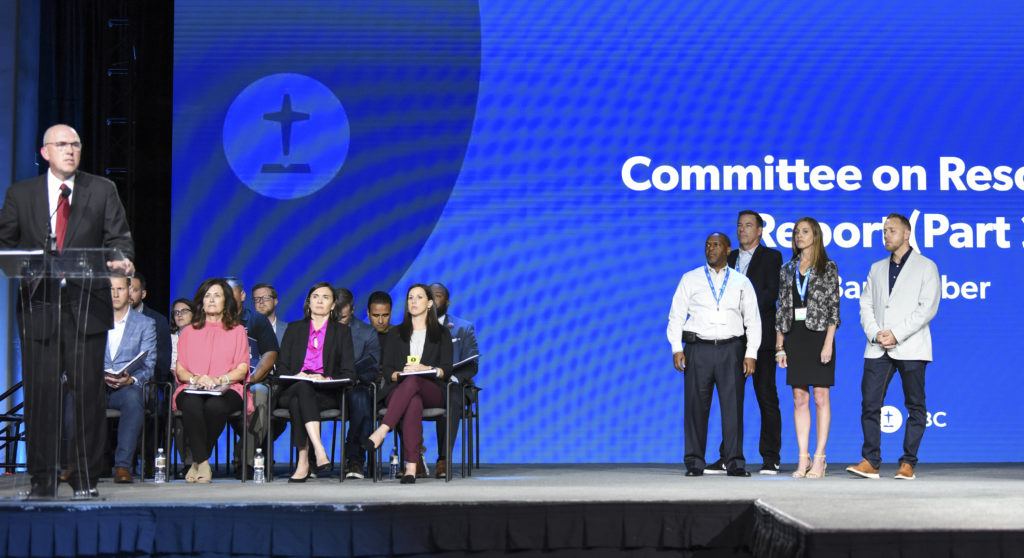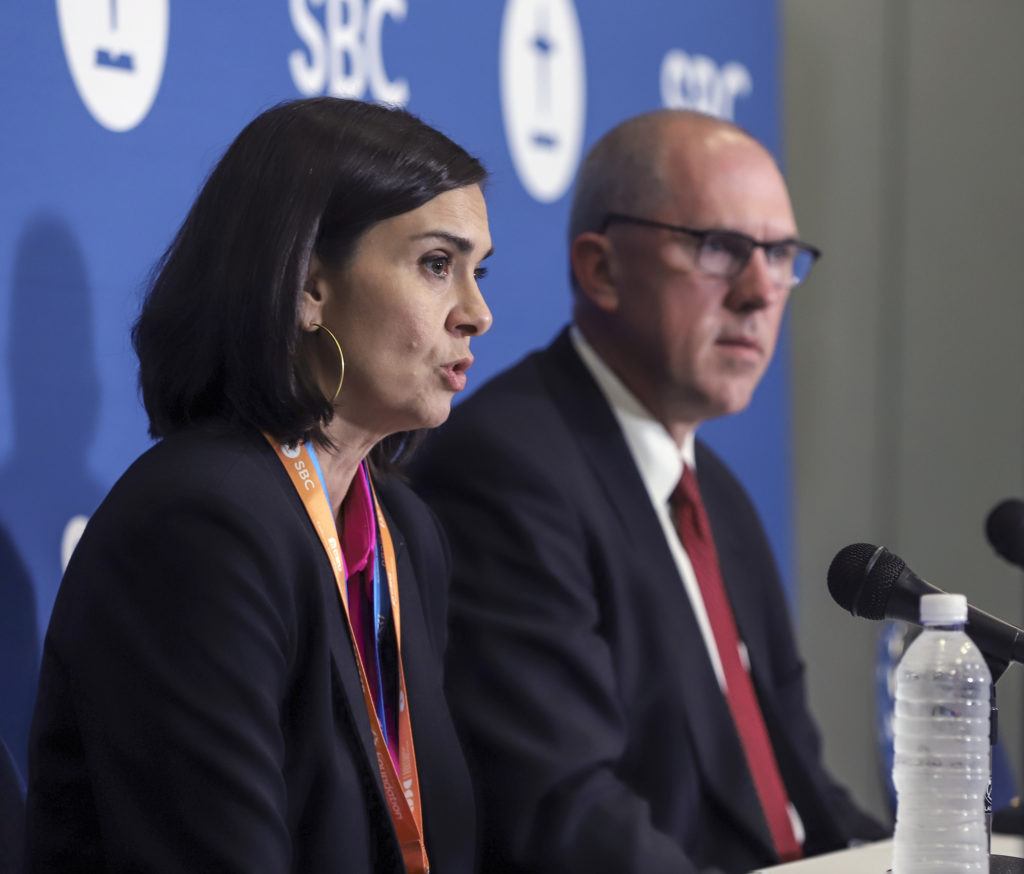
ANAHEIM, Calif. (BP) – The apostle Paul’s admonition to the church at Corinth was the example the Committee on Resolutions followed for a resolution on lament and repentance for sexual abuse adopted by messengers to the 2022 SBC Annual Meeting in Anaheim, Calif.
In the resolution, Southern Baptists publicly lamented the harm their “actions and inactions have caused to survivors of sexual abuse.”
Bart Barber, chair of the Committee on Resolutions, said during a press conference Wednesday (June 15) that the original draft of the resolution was submitted by the Sexual Abuse Task Force, “and the spirit of the resolution is found in 1 Corinthians 5.”
The passage “addresses a church in which one member of the church is guilty of a very disturbing sexual sin, and the letter, though, is written not to the person who did that but to the other members of the church who were around when that happened,” Barber said of Paul’s letter to the Corinthians.
“I think the roadmap that’s given for us there is to shun arrogance, to mourn and then to take action,” Barber said. “We believe that the resolution on lament played a critical part in obeying this biblical command to us as a church.”

To visibly demonstrate lament, the Committee on Resolutions and members of the Sexual Abuse Task Force stood on the platform behind the committee member presenting the resolution. “We were all standing up there in lamentation and repentance for what had happened,” Barber said.
Some messengers wondered why names of specific sexual abuse survivors were included the resolution, and Barber said the committee discussed the matter “very carefully.” A submitted resolution specifically named survivor Christa Brown in its title, and the subject matter of that resolution was addressed in Resolution 6 on lament.
“When we received that resolution, it seemed right to us not to leave people out,” Barber said. “So we reached out and contacted all of the survivors who were mentioned” in the Guidepost report commissioned by the Sexual Abuse Task Force.
“We asked them whether they would consent to have their names listed specifically in this resolution, and the names that appear are the names of those who gave consent for their names to be used,” Barber said.
Resolutions committee member Mike Keahbone, pastor of First Baptist Church in Lawton, Okla., said the resolution on religious liberty and forced conversion among Native Americans was historic and significant.
“It’s the first resolution among Southern Baptists that addresses the mistreatment and abuse of Native Americans,” said Keahbone, who descends from Cherokee, Comanche and Kiowa tribes. “We have long fought for racial reconciliation and stood on the side of those who weep and mourn and hurt, and Native Americans have often felt left out of that – even brothers and sisters in our own convention.”
The resolution sends a “very powerful and clear message” that Native Americans “are a part of this family, and we matter,” Keahbone said in the press conference.
A Bureau of Indian Affairs Investigative Report released in May found that the United States targeted Native American, Alaska Natives and Native Hawaiian children with forced assimilation and conversion in mandatory boarding schools. The report was a motivation for the resolution.
“If you read the 95-page report, it’s painful, and it hurts in ways that run really deep for me,” Keahbone said, adding that his great uncle, Perry Noyabad, was a Comanche Code Talker during World War II.
“He was one of those that was in one of the boarding schools. He was beaten severely, he was forced to cut his hair, and much of the punishment that he endured was because he spoke his native language,” Keahbone said. “And yet, the United States Army would call on him to help turn the tide of the war with his language.”
Keahbone learned from family members that his great uncle served in that way “not for who America was at the time but for who he believed it could be.”
“Because of that history, because of that part of my life, to see us as a convention make this resolution and make it a part of our history and a part of who we are and what we care about … sends a very clear and powerful message,” Keahbone said.
Barber added that the committee’s interest in sharing the resolution was “that we care about Native Americans” and “we care about methods of missiology and evangelism, and this was an attempt to take people from their homes and force them into a Christian environment to try to Christianize them, and the Southern Baptist Convention does not support that as a means of conversion.”
Forced conversions remain one of the greatest obstacles to Native Americans giving their hearts and lives to Jesus, Keahbone said, and Southern Baptists’ speaking to the issue “will open up doors for us in sharing the Gospel that I think will yield plenty of fruit.”
















